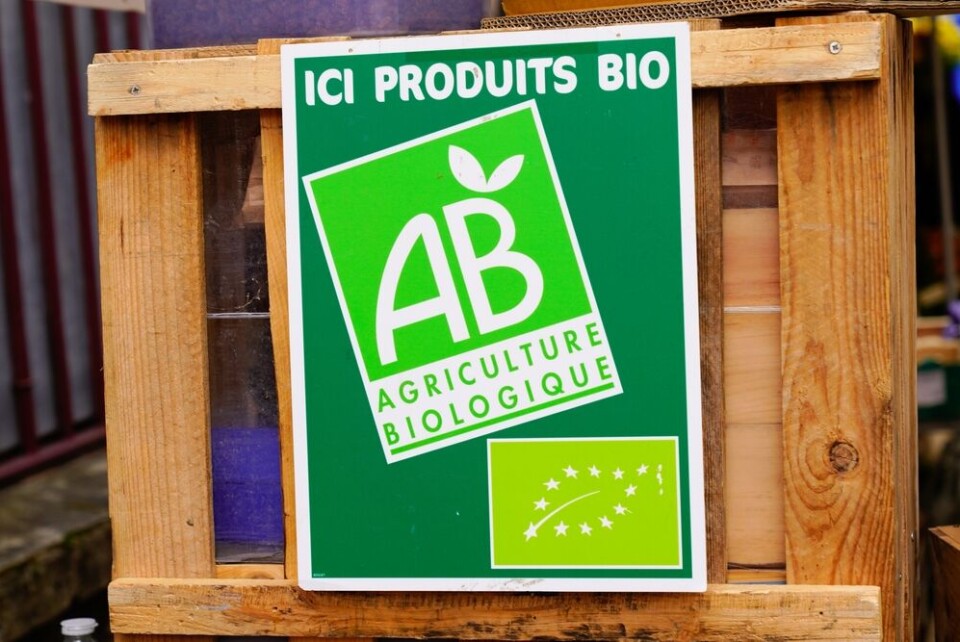-
La Voie Bleue: European Cycle Route of the Year is in France
700km bike path linking Luxembourg and Lyon has been crowned winner of the 2026 title
-
MAP: See how your location in France affects online food shop prices
New analysis shows how your shop compares on average
-
Further sightings of processionary caterpillars in France prompt action from local authorities
Caterpillars have arrived early after mild winter
Which areas of France have the most organic farming?
Livestock feed, cereals, and organic wine are the most common organic crops

Gers in the south is one of three departments in France that are well ahead on organic farming, with more than 30% of their farming surface area given over to the organic process, new figures show.
Organic farming (agriculture biologique) represents up to 8.5% of the total agricultural land nationwide, but these departments are far ahead of this national percentage, show the latest figures from l'Agence bio.
It also found that organic farming land area has more than doubled in France over the past five years, with 2.3 million hectares of land farmed using organic methods. This puts France second only to Spain, whose national percentage is 14%.
This growth is partly fuelled by the public’s increased consumption of organic goods, which rose by 13.3% between 2018 and 2019, the agency said.
Top departments for organic farming in France
The top three departments in France are:
-
Gers (Occitanie): 91,802 hectares
-
Loire-Atlantique (Pays de la Loire): 73,715 hectares
-
Aveyron (Occitanie): 70,008 hectares
Overall, the region of Occitanie represents 22% of France's total organic area, with 503,026 hectares - across 10,663 certified organic farms - farmed organically or in the process of being converted.
In contrast, the densely populated Ile-de-France region is at the other end of the scale. It has just 28,104 hectares of organic land and 493 certified organic farms. Yet, the region’s organic area is growing despite this, with a 25% increase in organic acreage between 2018 and 2019.
The biggest increase, though, is in the French overseas departments, with a 27.2% rise.
What tends to be farmed organically in France?
-
Crops for livestock feed: More than 60% of the area farmed organically, at 1.37 million hectares.
-
Field crops (cereals, oilseeds, pulses, etc.): 570,672 hectares
-
Vineyards for organic wine: 112,057 hectares
Almost all food and drink products can be made ‘organically’, meaning grown, produced or processed without the use of chemical pesticides, synthetic fertilisers, antibiotics, growth hormones or genetically modified organisms (GMOs).
In France, products must comply with the specific organic standards set by the relevant certification bodies in order to be sold as ‘organic’ and/or bear the Bio label.
Products can include fresh fruit and vegetables, cereals, pulses, meats, dairy products, eggs, honey, herbs and seafood, breads, pasta, preserves, fruit juices, yoghurts and jams. It can also include non-food products such as cosmetics, cleaning products, and certified organic textiles.
Despite the growth in France in recent years, however, more than a third (33.7%) of the organic produce consumed in France is still imported. Of this, 15% is imported from outside the EU.
But while France experienced a boom in the consumption of organic produce in 2017-2019, this has not continued. Organic food sales have continued to fall amid the rising cost of living, and in April 2022, the first 100% organic E.Leclerc supermarket closed due to “a lack of clients”, it said.
Similarly, in October 2023, increasing numbers of supermarkets reported having to close their organic aisles due to a 12% year-on-year fall (compared to 2022).
Organic farming aid in France
The state does provide some direct subsidies for farmers who convert their land to organic farming. It also offers maintenance aid to support farmers who already use organic methods.
There are also rural development programmes to promote and support organic farming, including financial incentives to encourage the use of sustainable farming practices.
This includes methods such as crop rotation, soil conservation, and non-pesticide pest management. France also aims to provide technical support, advice and training to help farmers make a successful transition to organic farming practices.
Related articles
French farmers in plea for help as sales of organic food fall
First 100% organic E.Leclerc supermarket in France closes
French supermarkets close organic product aisles due to falling sales
























